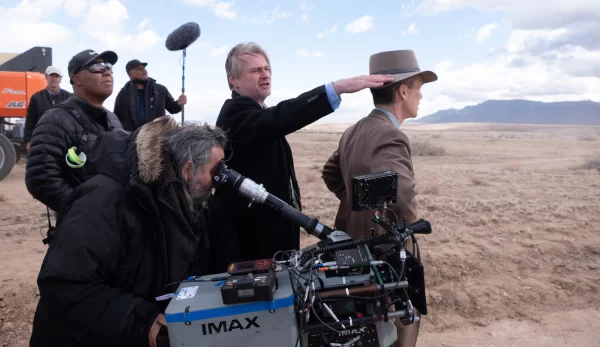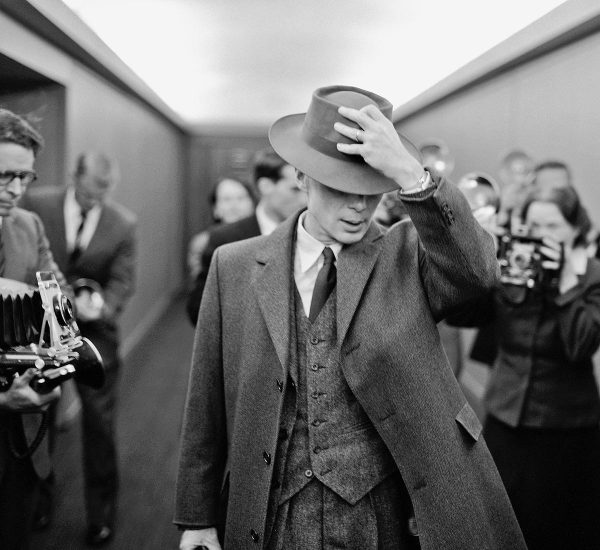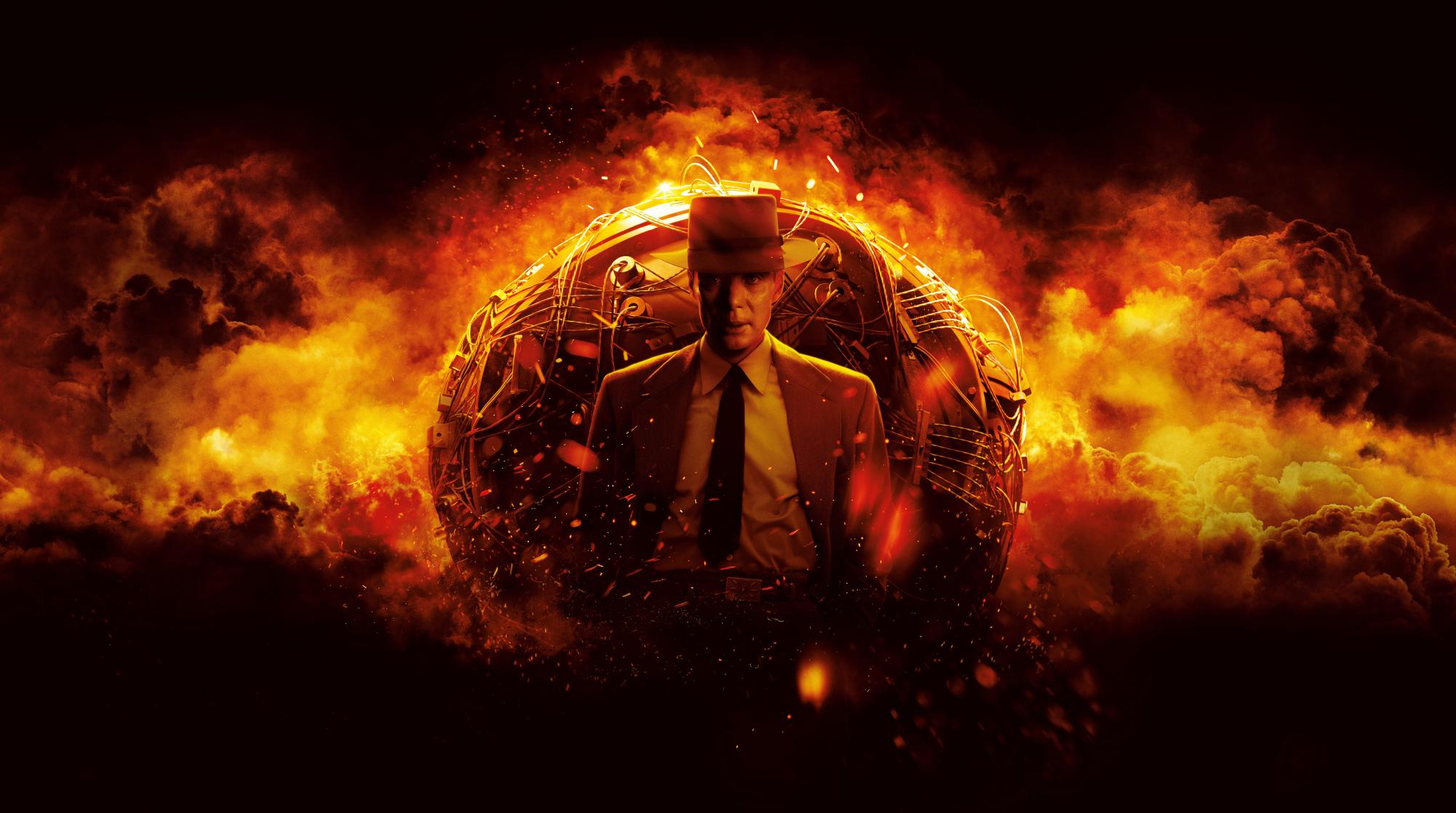For the 400,000 students who took APUSH this past year, Oppenheimer was a perhaps unwanted curriculum callback to the Manhattan Project. For millions of viewers across the globe, Oppenheimer was a haunting reminder of humanity’s ambitions. But for Christopher Nolan, the film is a cautionary tale: Oppenheimer is not a celebration of the creation of the nuclear weapon. Rather, it’s a meta-commentary about the moral implications for its creator.
Oppenheimer was released on July 21, 2023, and its dramatic trailers had many millions buzzing with anticipation. But when I saw the trailer, I was concerned. Nearly every movie that portrays a war ends up being a boring historical drama. Dunkirk? Slow plot. 1917? I fell asleep twice watching the trailer alone. Midway? Pretty mid. I was worried that Oppenheimer would fall into the same trap, but little did I know that Christopher Nolan actually invited us into one. He ensnares the audience with 70 mm IMAX film, a star-studded cast—Cillian Murphy, Emily Blunt, Matt Damon, RDJ, and Florence Pugh—and his ability to weave together a masterpiece, then bombards us with quality, A+ filmmaking. Is he successful? Absolutely.

Despite the hype behind how everything was filmed, the aspect that struck me the most was why the film was made. As seen in the trailer, Oppenheimer justifies his need to build the bomb to get ahead of the Nazis, despite being behind 18 months. As he gets closer to his goal, he realizes that a US victory and the potential for a nuclear apocalypse are inextricably tied together. Knowing this, he still finishes the bomb, all at the cost of his soul. Personally, I was intrigued on how Cillian Murphy portrays an empty husk of his character, and how easy it was to see through the void of his eyes after his morality is shredded up. Emotionally devastated, he feels as though he has “blood on his hands,” and yet the US is unfazed, continuing with work on the “super”: a hydrogen bomb that has the capability to end worlds. To me, that says a lot about humanity’s apocalyptic ambitions and desire to accelerate warfare, rather than to end it.

Ludwig Göransson, the film’s composer, performs an ominous soundtrack that encapsulates Oppenheimer’s dilemma with a chef’s kiss. You may have heard about him before in Black Panther and The Mandalorian, and his reputation is furthered with this film. Accompanied by multiple synth-esque “booms” and a violin that crescendos into a exponentially faster pulse, Göransson portrays Oppenheimer’s tension leading up to the moment the bomb explodes in the film’s stringed flagship performance: “Can You Hear the Music.” The soundtrack of the film is genius, as its stutters, hesitations, and ticking all mirror that of Oppenheimer’s growing mental weariness and instability.
As Oppenheimer’s health declines throughout the film, the score’s increasing volume slowly engulfs the audience, muting Oppenheimer’s emotions and his dialogue with deafening sounds. I can feel as if he is drowning in his own nightmares, overrun by his inability to talk to anyone but himself. Additionally, the violin plays a major role in the score as well, its rhythmic and lighthearted tunes twisting into spine-chilling screeches–an “alarm” that only the audience can hear–urging the physicist to immediately abandon his creation. However, the warning comes much too late.
From the surface level, Oppenheimer feels like a masterful piece of art, signed off by one of the greatest directors of all time: Christopher Nolan. But this film is unlike any other, as looking at it from a two-dimensional perspective is one of the most shallow ways to approach this multi-layered masterpiece. It’s the same exact thing as looking at the Mona Lisa with one eye closed. When the curtains are fully pushed away, Oppenheimer calls us to understand how even the creator despised himself for opening up floodgates for mass destruction. So, while some of us may still look at nuclear weapons as a technological marvel, director Christopher Nolan pleads us to look at them with terror.

